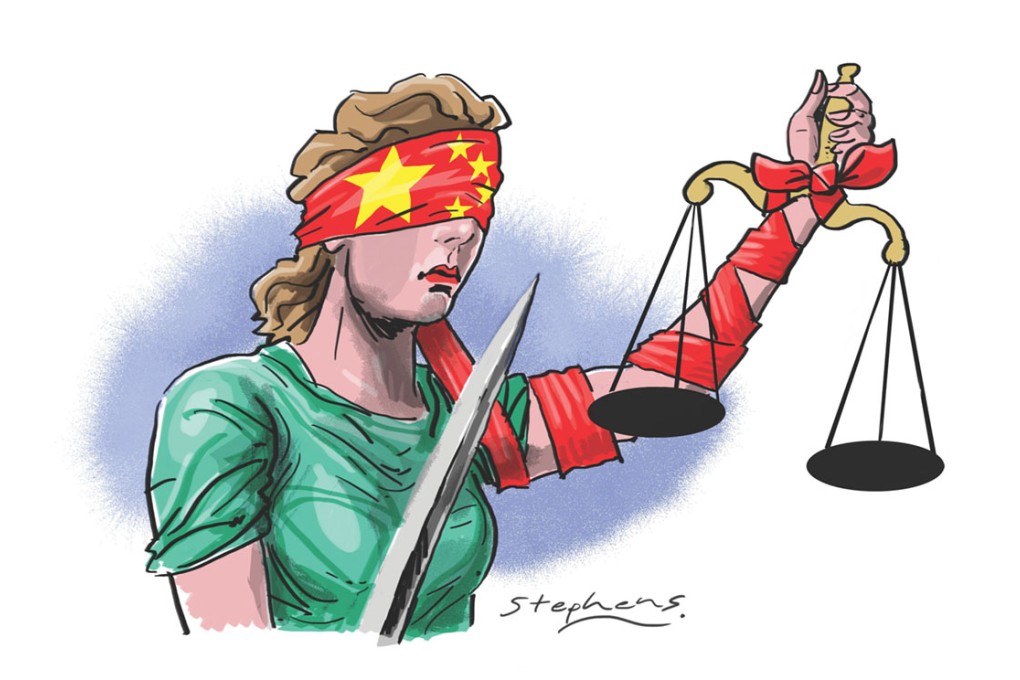Zhou Yongkang case shows China's rule of law still good only in theory
Jerome A. Cohen says party leaders' rousing pledge to strengthen China's rule of law, for the first time the focus of a major party meeting, is likely to ring hollow in the Zhou Yongkang case

For decades, China's communist leaders have admonished their cadres to "combine theory and practice". This is sound advice for any society. Yet, it is easier said than done. This perennial challenge now confronts the party's Central Committee as it prepares to convene the highly anticipated fourth plenary session in October.
Party propaganda organs are trumpeting the fact that, for the first time in the party's long history, issues relating to the rule of law will be the main topic of a major party conference. This meeting promises to be the culmination of a development that was launched almost two years ago at the 18th party congress and put into high gear when the Central Committee issued an ambitious reform decision a year later. It pledged to "accelerate the building of a just, efficient and authoritative socialist judicial system to safeguard the people's rights and interests, and ensure that the people are satisfied with the equality and justice in every court verdict".
The decision further gave such abstract goals detailed definition, promising to "promote the rule of law" by enforcing constitutional rights, improving government administration, strengthening the independent exercise of judicial and procuratorial power, and protecting human rights, especially those rights central to criminal justice. It emphasised legal prohibitions against torture and illegally obtained evidence and urged preventing and correcting wrongful convictions. It also endorsed "giving full play to the important role of lawyers in safeguarding the legal rights and interests of citizens and legal persons in accordance with law".
This admirable agenda would do any country proud. Heaven is indeed wonderful. The key, however, is how to get there.
Party leaders and their legal advisers have been struggling with the problem of how to achieve the rule of law for many years. Now, they claim, the fourth plenum will "provide a road map" that will "flesh out" the goals set forth in the decision so that, as the former director of research at the Supreme People's Court recently stated, "you can both 'see and feel' the rule of law".
Moreover, some party experts are advocating not merely "governing the country according to law" but also subjecting the government and the party themselves to constitutional and legislative constraints.
Yet, on the very same day the Politburo confirmed that the fourth plenum would concentrate on the rule of law, it also confirmed that the Central Commission for Discipline Inspection would soon complete its investigation of the once extremely powerful Zhou Yongkang . This is widely interpreted to mean that the commission will soon recommend to the Politburo that Zhou himself, a former public security minister and member of the Politburo Standing Committee, be prosecuted.